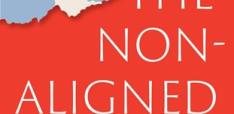Epistemic Insurgency: Resisting and Re-existing Reactionary Curriculum

This is the tenth chapter in a forthcoming e-book, entitled 'Decolonial Education and Youth Aspirations'. Ali Ahmed and Jairo I. Fúnez-Flores explore how epistemic insurgency can carve out new curriculums.
Since October 7, 2023, we have witnessed a proliferation of student encampments on university campuses across the United States. Although primarily organized in solidarity with the Palestinian struggle against Israel’s Zionist settler colonial project, these encampments also point to how crucial social movements and sites of struggle are in opening alternative educational and curricular spaces. Through their actions, students—with the support of faculty and staff—have uncovered an-‘Other’ way of acting, reflecting, and thinking about curriculums. They have made visible transgressive modes of thinking and enacting curricular and pedagogical practices as well as gestured towards possibilities for rethinking and retooling educational spaces toward liberation, despite the potential consequences to their careers. Student activists taught and continue to teach a different way of thinking and acting that challenges colonial systems and ideas. According to Walsh (2008), this represents a powerful and united effort to resist oppression through knowledge and action (epistemic insurgency). Students have reimagined curriculum and pedagogy beyond formal structures. Despite the potential threats to their livelihood and future aspirations, they have taught us that another humanity is possible (Lootens & Fúnez-Flores, 2024).
To be clear, students have always been at the forefront of liberation struggles and calls to transform educational institutions and curricular content the world over (e.g., Student movements before and after the 1960s, RhodesMustFall, FeesMustFall, Shackville, etc.). In 2015, students in South Africa critiqued, questioned, and resisted Eurocentric classroom practices as a way of exposing how educational institutions and their curricular structures uphold colonial narratives within so-called postcolonial contexts. Within the US context, Okihiro (2016) relates how in 1968, the Third World Liberation Front– a student coalition– organized and “demanded scholarship and teaching [that is] relevant to their concerns” and experiences. Responding to this “widespread campus insurgency by students” (Harris & Leonardo, 2018, p. 3), universities developed new ethnic studies programs and curricula, including hiring new faculty. Although these programs, including associated faculty, later experienced consistent marginalization on account of their “political” origins and commitments (Harris & Leonardo, 2018; Okihiro, 2016), the existence of ethnic studies exemplifies the critical role student activism plays in transforming educational institutions. It is important to think of this marginalization in terms of the enduring network of complex power relations that emerged alongside colonialism. Thus, when university leaders respond to student protests with harsh crackdowns, it shows that the fight against oppressive systems is far from over (Fúnez-Flores, 2025). As long as colonial legacies persist in different forms, the struggle continues (Harris & Leonardo, 2018; Ndlovu-Gatsheni, 2023). Thus, we must stress the urgent need to keep learning from and with social and grassroots movements.
Although events after October 7, 2023, are not necessarily directly related to curriculum and pedagogy, there is no denying that these actions by students do have implications for both, if we care to learn how to critically read and re-interpret the shifting socio-political landscape in which educational institutions are an integral part. Not only have these actions demonstrated and shed light on the enduring nature of coloniality, but they have also provided us with “both [the] practical and theoretical activities that respond to the problem of coloniality, and which manifest in different contexts in different ways” (Behari-Leak, 2019, p. 61), including through attempts to control and manage educational, curricular, and pedagogical spaces (Fúnez-Flores, 2023, 2024a). As students watch videos, hold discussions, listen to speeches, and read texts produced by historically excluded peoples and systematically silenced and invisiblized voices, they remind us of the importance of radical allyship and coalition building, as well as the need to stay humble and to ask critical questions such as “who is missing in the [class]room” (Harris & Leonardo, p. 20)? Whose voices and what knowledge are silenced, erased, and rendered invalid in the curriculum? And who gets to decide what qualifies as curriculum? This entails recognizing and creating borderland spaces (Anzaldúa, 1987) to challenge texts privileged by Euro-Western rationality (Behari-Leak, 2019). It also involves fostering new forms of thought, relationships, alliances, and resistance to oppression and marginalization. Pertinent questions to consider include: What if all classrooms become places of encampment? What if classrooms become sites of resistance against reactionary curriculum movements?
In this chapter, we aim to discuss epistemic insurgency - political and epistemic actions that challenge dominant knowledge systems and power structures by drawing on social, collective, and ancestral knowledge - as inseparable from resisting unjust/oppressive power systems/structures, which involves insurgent decolonial acts of resistance and re-existence against the reactionary grain of curriculum movements (Fúnez-Flores & Phillion, 2019; Mpofu, 2018). We start with a brief discussion of decoloniality, focusing on its associated concepts and analytics and how they help us interrogate and unsettle attempts to control and manage curriculum through restructuring and realignment, including banning books, programs, and critical thought. Next, we discuss insurgent decoloniality as a bold, disruptive, and revolutionary way of challenging colonial power in education–through protests, alternative teaching, and other forms of defiance (Boiles & Fúnez-Flores, 2024; Fúnez-Flores, 2024a). Finally, we examine how epistemic insurgency (resisting and challenging oppressive knowledge systems) can help educators and students push back against harmful curriculum reforms, while creating spaces for alternative ways of learning and surviving in classrooms.
Decoloniality
Despite the continuous attempts by critics and consumers alike to distort decolonial theory or misrepresent it as a coherent whole, it has always been a diverse and plural body of concepts seeking to disrupt Eurocentric understandings and interpretations of modernity, knowledge, history, and social totality (Fúnez-Flores, 2024a, 2025). Decoloniality is a process of extricating, detaching, or delinking from all forms of imposition, be it epistemic/cultural or political/material (Fúnez-Flores, 2022, 2024b; Fúnez-Flores el al., 2022; Mignolo, 2020; Ndlovu-Gatsheni, 2023; Quijano, 2007). It is a praxis orientation and a process of re-membering excluded histories, experiences, languages, and knowledges (Mignolo, 2020; Ndlovu-Gatsheni, 2015b; Quijano, 2007; waThiong’o, 2009). It is “a cocktail of insurrectionist-liberatory project and critical thoughts emerging from the ex-colonized epistemic sites like Latin America, Caribbean, Asia, Middle East, and Africa” (Ndlovu-Gatsheni, 2015a, p. 489), as well as sites of struggle located within settler colonial contexts (Ayyash, 2023, 2024a, 2024b; Tuck & Gaztambide-Fernandez, 2013; Wolfe, 2006).
Put differently, decoloniality aims to dismantle power structures and knowledge conceptions that sustain racial, gender, heteropatriarchal, and geopolitical hierarchies that constitute the modern/colonial world system. It also seeks to rehumanize the world through counter-discourses, knowledges, creative acts, and practices that challenge coloniality and embrace diverse ways of being (Maldonado-Torres, 2011, 2016). Thus, when students co-create content, read texts, watch videos, deliver solidarity messages, and make demands on universities to end ties with companies and institutions that produce weapons and other technologies of colonial violence, they are engaged in insurgent acts of decoloniality. Decoloniality is a response to the emergence of heterarchies of power - coloniality or colonial matrix of power, to be precise (Mignolo & Walsh, 2018; Quijano, 2000, 2007). A gift from Aníbal Quijano (2000), coloniality explains a web of complex, multidimensional power relations that emerged alongside colonialism. Ndlovu-Gatsheni (2015a) describes it as an intricate web of intersecting, vertical, and horizontal invisible connections within the modern global power structure shaped by colonial encounters. Coloniality is “better understood as an octopus constituted by heterarchies of domination, control, and exploitation” (p. 487).
The octopus character of coloniality finds expression in the ways that hierarchies are created, defined, determined, and maintained within the realms of race, class, gender, sexuality, religion, linguistics, and even aesthetics (Grosfoguel, 2011; Maldonado-Torres, 2024). In this regard, coloniality is everywhere. It penetrates every aspect of our social life or totality and defines labor, culture, intersubjectivity, religion, and knowledge production (Maldonado-Torres, 2007, 2023). In short, “we breath[e] coloniality all the time and every day” in the books we read, our cultural practices, commonsense behaviors, self-concept and aspiration, and our notions of success and beauty (Maldonado-Torres, 2007, p. 243). Coloniality reminds us that colonialism, rather than being over, is all over (Mignolo & Walsh, 2018). It is thus, “an invisible power structure, an epochal condition, and epistemological design, which lies at the center of the present Euro-North American-centric modern world” (Ndlovu-Gatsheni, 2015a, p. 488). To hold this power structure in place and to give it validation, a social construction of race was developed to serve as the anchor and pivot around which human beings may be ranked based on ontological racial densities (Ndlovu-Gatsheni, 2015b; Quijano, 2000, 2007,). It is a system of knowledge that defines and delimits the non-European/non-Western subject as belonging to the past and thus as primitive and inferior (Leonardo, 2018; Quijano, 2000). In this sense, the coloniality of knowledge is intimately entwined with systems of domination and exploitation that depend on the dehumanization of colonized and racialized peoples.
Central to this discussion is the coloniality of power which, broadly speaking, can be described as a governing structure in which one group ascribe to themselves, the power to racialize/dehumanize and systematically control knowledge, labor, (inter)subjectivity, gender, and authority (Quijano, 2000, 2007). This is achieved through the exercise of control over social, political, economic, and cultural institutions of society, the consequence of which is the reproduction of various subject positions that then lend credence to and/or justify dominant positions (Boiles & Fúnez-Flores, 2024). Coloniality of power reveals the decision-making power of neoliberal governance structures (authority) and the concerted efforts of reactionary curricular movements to suppress the teaching of alternative knowledge, experiences, and histories.
Perhaps the epistemological role of coloniality in education and curriculum studies can become clearer through concepts such as the coloniality of knowledge (Quijano, 2007) and the geopolitics and coloniality of curriculum (Fúnez-Flores, 2024a), particularly because these concepts reveal the inextricable relationship between colonial domination and epistemic imperialism (control and regulation of what counts as knowledge) that sought “to domesticate a people, control their history and distort their representation through canons of knowledge” (Leonardo, 2018, p. 7; Ndlovu-Gatsheni, 2018a, 2018b, 2020, 2023). As such, when states enact laws to prohibit the teaching of certain academic programs (e.g., ethnic studies in Arizona) and books (e.g., in Florida and Texas), they only do so to maintain the status quo and to ensure that ongoing struggles and lived experiences do not find their way into the curriculum (Boiles & Fúnez-Flores, 2024). In other words, reactionary education policies and book banning across the US explain how the society’s power systems/structures and rigid ways of thinking reinforce each other (Leonardo, 2018, p. 10). Thus, perpetuating Eurocentric perspectives and discourses that uphold dominant social, cultural, and political institutions (Boiles & Fúnez-Flores, 2024).
It is important to note that the coloniality of knowledge focuses mainly on the politics of knowledge, including whose and what knowledge receives recognition and validation, determining what is qualified to be included in the curriculum, as well as who produces what knowledge and for which purpose (Ndlovu-Gatsheni, 2018a). Put differently, the coloniality of knowledge is premised on the understanding that colonialism is also an epistemic project “that orients western knowledge towards non-western ways through a will to dominate” (Leonardo, 2018, p. 7). The coloniality of curriculum, on the other hand, goes a step further to interrogate the relationship between the epistemic and the material forms of domination within the context of education, including the systematic erasure and silencing of other knowledge deemed either too threatening to the status quo or philosophically insignificant for colonial regimes of truth. Coloniality of curriculum is thus a pedagogical tool used to maintain control over people and to normalize/naturalize colonial and capitalist oppression. Thus, explaining how school systems, through the curriculum, reinforce indifferent attitudes towards colonized and racialized groups, both locally and globally (Boiles & Fúnez-Flores, 2024). Understood this way, these concepts allow us to read the reactionary curriculum reform movements occurring in some states across the US as pedagogical moves to strategically control what is or is not worth knowing. These pedagogies of domination shut down any attempts to reclaim the silences of the past and the experiences of resistance/re-existence in the present, including struggles against racism, capitalism, settler colonialism, and heteropatriarchy. It becomes imperative, therefore, to resist such pedagogical moves and create possibilities to think and act otherwise using diverse insurrectional practices or insurgent decoloniality.
Insurgent decoloniality
Decoloniality advocates disengaging from knowledge systems that sustain colonial dispossession and domination, including dismantling power asymmetries and epistemic frameworks that perpetuate gendered, racialized, and geopolitical hierarchies in the modern colonial world (Maldonado-Torres, 2007; Mignolo, 2020; Quijano, 2007). However, these efforts to challenge the dominant narrative by bringing forward ignored perspectives while exposing how powerful ideologies pretend to be the only truth about historical events (Ndlovu-Gatsheni, 2015a, p. 489) can assume various forms and shapes (Fúnez-Flores, 2025). The “manifest and latent, macro and micro, militant and subtle, tactical and strategic” (para. 20) approaches to revolting against coloniality of knowledge and curriculum is what makes it an insurgent decolonial act (Fúnez-Flores, 2025). Insurgent decoloniality refers to collective acts of revolt and insurrection that emerge from the rubbles of death and destruction left in the wake of coloniality, but that also seek to present an-Other way of knowing and existence (Fúnez-Flores, 2025).
Insurgent decoloniality is a spontaneous yet organized resistance and re-existence movement that draws on unconventional tactics, including but not limited to ambush, sabotage, and guerrilla (intellectual) warfare (Fúnez-Flores, 2025). A battle of ideas that is waged with pen and paper, as well as through collective action. Spontaneous in the sense that actors (insurgents) can no longer withstand the chokehold of coloniality masquerading as progress, development, and civilization. In other words, they can no longer breathe because the colonial knee is too heavy on their neck (Maldonado-Torres, 2016). Thus, they rise collectively to revolt “from below, like a spring of water (surge) that can no longer be contained as it bursts out to bring life and new modes of co-existence in a modern/colonial world” that only knows death and destruction (Fúnez-Flores, 2025, para. 20). Spontaneity also helps insurgents to move unpredictably within university campuses and classrooms as they continue to engage in acts of insurrection against coloniality and the self-justification of the liberal order, its values, and its epistemic frameworks (Maldonado-Torres, 2016). Conversely, they are organized in their goal and desire to see change and to create possibilities for a world otherwise—to challenge and dismantle/undermine the modern/colonial world and the project of dehumanization it underpins, including affirming life and other modes of knowing, being, and relating in the world and with one another (Fúnez-Flores, 2025). It is thus not wrong to describe student encampments as decolonial insurgency combatting counterinsurgent efforts seeking to silence dissident voices and to associate their actions (reading (silenced) texts, watching videos, listening to speeches) as constituting acts of theorizing curriculum that are not confined to classrooms but instead emerge from sites of struggle for liberation and decolonization.
Epistemic Insurgency as Insurgent Decoloniality
If, as it has been argued, coloniality conceals and distorts the reality of oppression and exploitation instead of revealing and illuminating it (Mpofu, 2018), there is no question that decoloniality does the opposite. Given that colonialism was deeply intertwined with epistemological imperialism, decolonization, once thought of as re-Indigenization of political authority, is inadequate in dealing with issues of knowledge and cognition. For “it is one thing to remove the colonizer from the first and quite another to purge them from the second” (Leonardo, 2018, p. 12); gaining political independence doesn’t necessarily mean freedom from cognitive control. Thus, we need to resist reactionary curricular reforms by challenging and changing the way knowledge is controlled and shared (Mignolo, 2020; Quijano, 2007). This involves actively pushing back against dominant ways of thinking that maintain oppression and privilege–epistemic insurgency. However, this intellectual work must be accompanied by real action, thinking critically and joining the liberation struggle. Otherwise, we risk prioritizing the development of radical ideas, rather than pursuing actions that actually dismantle oppressive systems.
Epistemic insurgency is an operation to repair, re-member, and liberate power, being, and knowledge in the classroom and beyond. It is premised on the idea that victims of coloniality—those who have and continue to exist in the shadow of death—can offer new ideas to humanity (Mpofu, 2018). To the extent that it rejects the imitation and caricature of Eurocentric knowledge paradigms, invents new ones to affirm life and liberation, and embraces previously unthought-of forms of epistemic revolt, epistemic insurgency is a decolonial insurgency (Fúnez-Flores, 2025; Mpofu, 2018). Any notion of a single epistemic tradition leading to universal truth is rejected, shifting focus to non-Western philosophies, epistemologies, and pedagogies.
Conclusion
The coloniality of curriculum as a pedagogical mode of imperial domination ensures the erasure, distortion, and silencing of memories and histories (Boiles & Fúnez-Flores, 2024; Mpofu, 2018). It seeks to naturalize the imitation and assimilation of Eurocentric culture, values, and ideas by presenting them as the ideal. Epistemic insurgency seeks to rebelliously negate these negations occasioned by book banning and other policies that prohibit the teaching of certain contents, curriculum, and critical thought. But what would this look like for students in the classroom? How (and in what ways) can classrooms become sites of epistemic insurgency? A productive approach might involve drawing on non-Western philosophies, pedagogies, and epistemologies that embrace a relational standpoint, countering the individualism and competitiveness emphasized in Eurocentric, neoliberal curricula. Concepts like Sankofa (return to reclaim), Ubuntu (humanness and interconnectedness), Whanaungatanga (kinship), and Bilchiinsi (protecting others’ humanity) offer pathways for students to reclaim lost knowledge (Gyamerah et al., 2023), affirm their identity through community (Reviglio & Alunge, 2020), cultivate shared responsibility (Bishop et al., 2014), and respect each other’s humanity (Mohammed, 2022). These philosophies provide alternative ways of thinking and existing, although they represent just a fraction of possible approaches to epistemic insurgency. Epistemic insurgency, or insurgent decoloniality, involves challenging exclusive spaces but also building enduring strategies for resistance, including developing a radical position that militantly rejects complicity.
Ali Ahmed is a PhD student at the Department of Curriculum and Instruction, Texas Tech University. Ali’s research and scholarship revolves around decolonial theory, curriculum studies, teacher education and sociocultural issues in education and curriculum. He is also interested in the role of African/Ghanaian Indigenous philosophies, knowledge systems, and pedagogies in decolonizing education and curriculum.
Website: https://orcid.org/0000-0002-3903-7703
Jairo I. Fúnez-Flores, PhD is an assistant professor at the Department of Curriculum and Instruction, Texas Tech University. Jairo has published widely on decolonial thought and scholarship. He is a co-editor of The Sage Handbook of Decolonial Theory. His research and scholarship straddle between sociocultural issues in education and curriculum studies as well as decolonial theory particularly the entanglement between the epistemic and material aspects of decoloniality. Jairo also has a keen interest in the role of social movement and sites of struggle in knowledge production.
Website: https://orcid.org/0000-0001-8107-309X
Substack: https://jairofunez.substack.com/
Image: Can Pac Swire (CC BY-SA 2.0)


